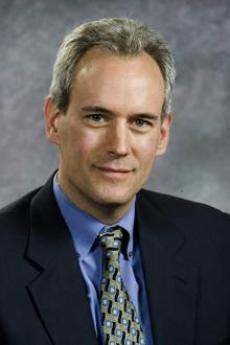by Paul E. Carrillo (George Washington University), Andrea Lopez (George Washington University), & Arun Malik (George Washington University)
Month: March 2018
Redefining Protectionism: The New Challenge in the Digital Age
by Susan Ariel Aaronson (George Washington University)
Twenty-first century protectionism is a slippery concept. With the introduction of digital trade, it is important for scholars and policymakers to rethink how they define, measure, and address protectionism. This is most clear in the United States where attitudes towards digital trade and digital protectionism have been murky at best.
While the digital is important to all countries, it is particularly important to the United States, where digital trade represents nearly 55 percent of U.S. service exports and has generated an annual trade surplus of over $150 billion. In a principal effort to limit digital protectionism and maintain an open internet for the advancement of the free flow of information, the United States made the move to create binding rules to govern trade in the Trans-Pacific Partnership and was the first country to call out digital protectionism in other nations. Policymakers now understand that information, whether it is created or altered within their county, is an asset. Therefore, measures that restrict content, limit the flow of data, or impose standards that keep out foreign competition could threaten the generativity of the internet as a whole.
However, many governments disagree with the scope and breadth of U.S. claims about digital protectionism. For example, Canadian and Australian policymakers are determined to protect the privacy of their citizens’ health records and require such information to be stored on local servers to an extent that tends to outpace U.S. standards. Adding to the confusion, U.S. arguments against digital protectionism are often inconsistent. For example, in a 2013 report on foreign trade barriers, U.S. officials complained about Japan’s uneven, and Vietnam’s unclear, approach to consumer privacy. At the same time, the United States has argued that China’s failure to enforce its privacy laws is harmful to digital trade.
Despite the importance of digital trade and digital protectionism, the United States has not thought out its stance on questions like: Is a policy truly protectionist? How harmful are these policies to U.S. interests? Are trade sanctions an appropriate response, and which agency should be responsible for making these decisions? As digital trade takes up a bigger portion of the global economy, policymakers and companies will need clarity. Given the stakes, it is important that the United States takes a leading role in defining digital protectionism.
Marketcraft: How Governments Make Markets Work in the US and Japan
Dr. Steven Vogel
Il Han new professor of Asian studies, University of California, Berkeley.
Marketcraft: How Governments Make Markets Work in the US and Japan
Wednesday, March 14, 2018
12:30 to 1:45pm
Chung-wen Shih Conference Room
Sigur Center for Asian Studies
The Elliott School of International Affairs
1957 E Street, NW, Suite 503
Washington, DC 20052
Dr. Steven Vogel is the Il Han new professor of Asian studies and a professor of political science at the University of California, Berkeley. He specializes in the political economy of advanced industrialized nations, especially Japan and the United States. Vogel’s new book is entitled Marketcraft: How Governments Make Markets Work and builds on three decades of scholarship. He is also the author of Japan Remodeled: How Government and Industry Are Reforming Japanese Capitalism, and his first book,Freer Markets, More Rules: Regulatory Reform in Advanced Industrial Countries, won the Masayoshi Ohira Memorial Prize. He has a B.A. from Princeton University and a Ph.D. in Political Science from the University of California, Berkeley.

International Economic Policy Forum: Special Series in Celebration of IIEP’s 10th Anniversary
Robert Koopman
Chief Economist and Director of the Economic Research and Statistics Division of the WTO
International Economic Policy Forum: Special Series in Celebration of IIEP’s 10th Anniversary
Monday, March 5, 2018
5:30 to 7:00pm
Elliott School of International Affairs
1957 E Street NW
Washington, DC 20052
View the Presentation Slides Here
The Institute for International Economic Policy welcomes Bob Koopman to discuss “Trade and Growth: Past, Present, and Future.” Koopman serves as the Chief Economist and Director of the Economic Research and Statistics Division at the World Trade Organization. In this post Koopman provides the Secretariat and Member Countries with analysis and information that promotes a deeper understanding of trade and trade policy’s role in economic growth and development.
He previously has served as the Director of Operations and Chief Operating Officer for the United States International Trade Commission, the Chief Economist and Director of the USITC Office of Economics, as a professor at Georgetown University, and in numerous leadership and research positions at the Economic Research Service of USDA.
This event is the second in a series celebrating IIEP’s 10th Anniversary. Louis Fox, Chief Economist at USAID, joined us in November for the series’ inaugural event, and Martin Fleming, Chief Economist at IBM, will be visiting on April 9th for the series’ third installment.
